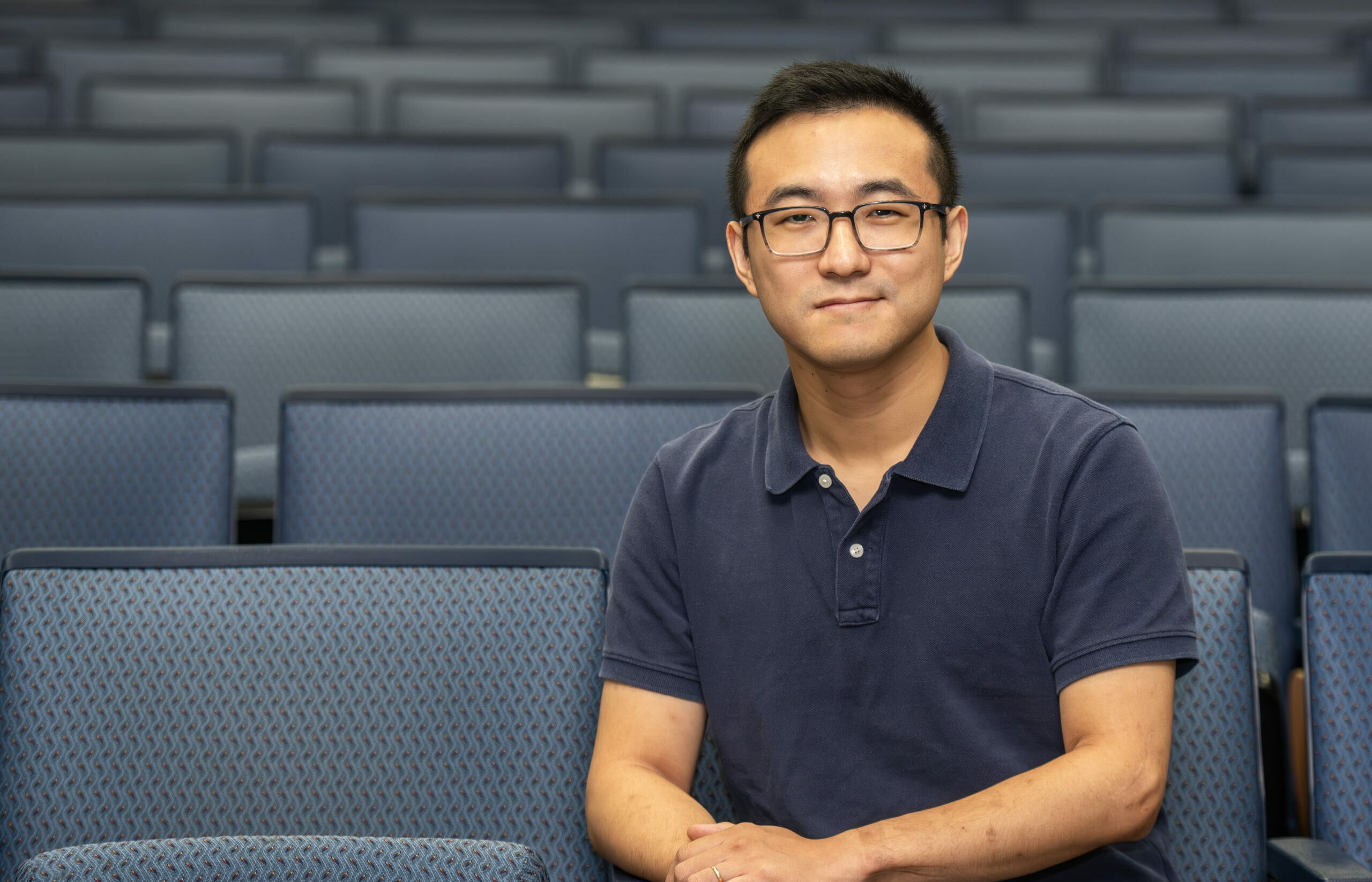Zhang joins prestigious anatomy training program

A desire to pursue his interests and to become a better teacher have led biomedical sciences assistant professor Dr. Chi Zhang to join the Anatomical Society’s Anatomy Training Programme. This prestigious two-year program will better qualify Zhang to teach human anatomy at a U.S. medical school level and to educate dental students on how oral health is connected to the entire body.
“This will help me better connect with what [the students] will be doing,” he said. “Some will go on to orthodontic school or endodontics, or oral surgery. For any of that, you’ll have to know head and neck anatomy really well, but they’re also going to be giving medicine to their patients.
“For that, you need to know the GI tract and digestion,” he said. “Many of the nerves in our limbs come from the neck region, and students need to know the pathways through which infections can travel. Everything in the body is connected.”
The Anatomy Training Programme is co-sponsored by the American Association for Anatomy and the Anatomical Society of the United Kingdom. The two-year course will kick off in September and conclude in 2026. Zhang will report to an on-site mentor at Texas A&M School of Dentistry, as well as take part in summer residencies in the United Kingdom.
The program is an intensive study of human anatomy and dissection, giving the participants a deeper understanding of the structure of the entire body, rather than just a focus on the head and neck region most associated with dentistry. The program also prepares participants for teaching, having them write reflections and teaching plans for classrooms.
“It’s full body dissection training,” Zhang said. “It covers everything. It’s a very intense program. Only if you pass the first year, they’ll give you the support for the second year.”
Zhang earned his Ph.D. in biological anthropology in 2020 from the University of Pittsburgh. Fossils and bones have long interested him, particularly in the head and neck region of the body. His current research focuses on developing and applying novel computational techniques to model, quantify and visualize 3D anatomical features in the craniofacial region for biomedical research, such as orbital surgical simulation. Through his research, he realized that having a solid understanding in anatomy is necessary to ensure technologies can accurately capture highly variable anatomical and pathological conditions.
“As an anthropologist, I’ve always been fascinated by human anatomy, and I’ve had this idea that I need to really learn as much as I can,” he said. “This program is invaluable for that. … It fits very well with the research of the biomedical sciences department.”
Dr. Mikhail Umorin, a fellow instructional assistant professor in biomedical sciences, will be Zhang’s on-site mentor. Umorin also underwent the program and attested to its value in his career, as well as its intensity. As a mentor, Umorin will check in with Zhang to ensure he’s keeping up with his work, review his reflections and the work he has to turn in, and help him develop his skills as an anatomist and as a teacher.
“It’s a lot to deal with when you’re doing other things like teaching and research,” he said. “It’s aimed not so much at learning anatomy, but how to teach anatomy. They’re really teaching you how to teach.”
Zhang said the program will give him more stability in his career, as well the ability to pursue his teaching interests and new research opportunities. He also said it will make him a better teacher. He has loved working with his students and wants to become the best teacher possible for them.
“I wish I could help them more, give them more guidance,” he said. “That’s what motivated me to apply for this program. It’s very intense, but I think it’s going to be very rewarding. I’m very motivated.”